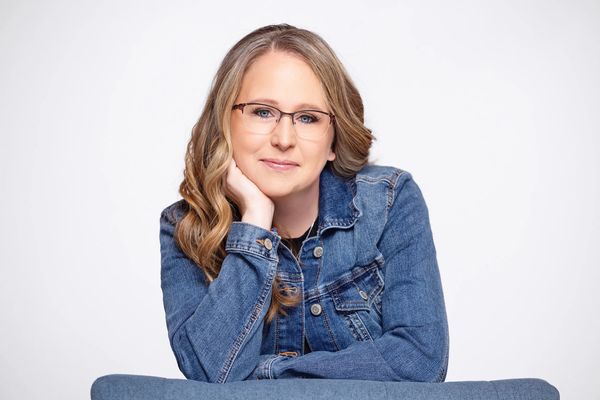-(1).jpeg?fit=outside&w=1600&h=1067)
Photo courtesy of Sunshine Academy
How to Choose the Right Childcare: Key Questions to Ask and What to Look For
Choosing a childcare program is one of the most important decisions parents make in the early years. The right environment not only ensures a child’s safety and well-being but also lays the foundation for their social, emotional, and academic growth. With so many options available, knowing what to look for can make the process easier and give parents confidence in their decision.
As an early childhood professional, I’ve worked with countless families navigating this choice. The best childcare programs share key qualities that create a safe, engaging, and developmentally appropriate experience for young children.
1. Safety and Security Should Be a Top Priority
The first consideration in any childcare setting should be safety. A high-quality program will have:
- Controlled entry systems to ensure only authorized individuals can access the facility.
- Background-checked, trained staff who meet or exceed state licensing requirements.
- Clear emergency protocols for fire drills, weather events, and medical situations.
- Safe, clean, and age-appropriate classrooms and play areas.
- Surveillance cameras to monitor classrooms and common areas, adding an extra layer of security and accountability.
Before enrolling, parents should ask about safety policies and observe whether the environment feels secure and well-maintained.
2. A Reliable and Predictable Routine Supports Children’s Growth
Consistency is essential for young children. A structured daily routine helps kids feel secure and understand what to expect each day. Parents should look for:
- A posted daily schedule that includes learning time, meals, rest, and outdoor play.
- A reliable staffing plan that minimizes disruptions and maintains familiar caregivers.
- A clear policy on closures to ensure families aren’t left scrambling for backup care.
When visiting a childcare program, parents should ask: “What does a typical day look like here?” A well-run center will be able to provide a predictable schedule that balances structure with flexibility. In addition, they should be able to provide you with a list of closures well in advance.
A Note About Turnover in Childcare
Many parents worry about staff changes in childcare, but turnover isn’t always a bad thing. In fact, high-quality programs recognize that early childhood education is often a stepping stone for college students, young professionals, and those in transitional seasons of life. Additionally, centers with high standards will make staffing changes when necessary to ensure that every teacher is the right fit for the program and the children in their care.
Rather than focusing solely on turnover rates, parents should ask how a program manages transitions and ensures that children feel supported during staff changes. Look for programs that prioritize hiring well, training consistently, and communicating openly with families when changes occur.
3. A Play-Based, Standards-Aligned Curriculum Prepares Children for Kindergarten
Early childhood education is much more than babysitting. The best programs follow a structured, play-based curriculum that encourages curiosity, problem-solving, and early academic skills. Parents should look for:
- A curriculum aligned with Montana Early Learning Standards, ensuring children are developing the skills they need for kindergarten and beyond.
- A balance of teacher-led activities and free play, allowing children to explore and learn at their own pace.
- Opportunities for hands-on learning, such as sensory play, STEM activities, and creative expression.
A strong program will be able to explain how their curriculum supports child development and prepares children for future learning.
4. Communication Between Parents and Teachers is Essential
A great childcare program doesn’t just care for children—it partners with parents. Strong communication ensures families stay informed and feel connected to their child’s experience. Parents should look for:
- A daily communication system (such as an app or printed report) that provides updates on meals, naps, activities, and important announcements.
- Regular opportunities to provide feedback and opportunities for improvement. Let’s face it, no program is perfect, and it takes the input of families to promote positive change and growth.
The best programs understand that parents are a child’s first teacher and work to build a collaborative relationship between home and school.
5. Engaged, Passionate Teachers Create the Best Learning Environments
The most critical factor in any childcare program is the quality of its teachers. Parents should look for educators who are:
- Warm, patient, and responsive to children’s needs.
- Actively engaged in classroom activities, rather than supervising from a distance.
- Trained in child development and continuously growing in their skills.
Great teachers don’t just supervise children—they inspire them. A center that invests in professional development and values long-term staff retention is more likely to provide consistent, high-quality care.
Making the Right Choice
Finding the perfect childcare fit is about more than just convenience or cost. Parents should take the time to tour multiple programs, ask questions, and observe the classroom atmosphere. Trusting your instincts is just as important as checking off the practical requirements.
A great childcare program will prioritize safety, provide a structured yet nurturing environment, follow a strong curriculum, maintain open communication, and employ passionate, engaged teachers. These elements create a setting where children feel secure, develop confidence, and build a love for learning—giving them the strongest foundation for the future.
About the Author
Sara Schreiner is the owner of The Sunshine Academy, a certified parenting coach, and a dedicated advocate for early childhood education. With years of experience in the childcare industry, she has helped parents navigate the joys and challenges of raising over a thousand children in Yellowstone County. Her expertise in early learning, child development, and family support makes her a trusted resource for parents seeking guidance in choosing high-quality childcare.


